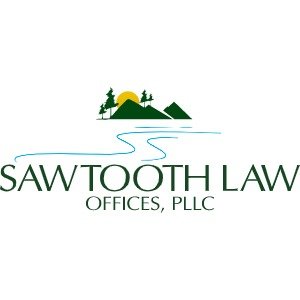Best Probate Lawyers in Twin Falls
Share your needs with us, get contacted by law firms.
Free. Takes 2 min.
List of the best lawyers in Twin Falls, United States
United States Probate Legal Questions answered by Lawyers
Browse our 1 legal question about Probate in United States and read the lawyer answers, or ask your own questions for free.
- My husband passed away five years ago. We have a property in th Philippines and I would like to transfer everything to my child. We are now residing in California, as U.S. citizens and my late husband a Filipino citizen.c
- How can I transfer Title on the property to my child?
-
Lawyer answer by Recososa Law Firm
Hello: We are sorry to hear about the passing of your husband, and we extend our deepest condolences. Regarding your concern, since your husband was a Filipino citizen and you are now both U.S. citizens residing in California, the property...
Read full answer
About Probate Law in Twin Falls, United States:
Probate law in Twin Falls, United States pertains to the handling of an individual's assets, debts, and final wishes after their demise. This process ensures the transfer of the decedent’s assets to lawful beneficiaries, and payment of any liabilities. The probate procedure can be complex and demanding, comprising of documenting and appraising assets, paying debts and taxes, and distributing leftovers to heirs in accordance with the will or state law.
Why You May Need a Lawyer:
Legal assistance is often needed in probate matters for numerous reasons. Dealing with a loved one's estate can be a daunting task, particularly while grieving. Additionally, the process can be complex, involving nuances of law that may not be readily accessible to laypersons. It's also not uncommon for family disputes to arise around estate matters, and having a lawyer can help in mediating these issues. Also, if a will is contested, or if the deceased died intestate (without a will), legal guidance becomes even more critical.
Local Laws Overview:
The probate laws in Twin Falls, and across Idaho, require that the deceased's estate, if valued above a certain monetary threshold should go through a formal probate process unless all assets were jointly owned. If there's a will, the person named as the executor initiates the process. If the deceased died intestate, the court will appoint an administrator. The state law also determines how to distribute assets if there is no will.
Frequently Asked Questions:
1. What if there is no will?
If a person dies intestate, their assets are distributed according to Idaho laws of intestate succession, which generally follow a format of passing assets to the closest relatives.
2. How long does probate take?
The duration of probate can vary immensely, usually ranging from a few months to a few years depending on the complexity and size of the estate, as well as whether any disputes arise.
3. Can probate be avoided?
Yes, Probate can potentially be avoided through joint ownership, gifting of property, establishing a living trust, or listed beneficiaries on financial accounts and insurance policies.
4. What does the executor or administrator do?
The executor or administrator is responsible for locating the deceased's assets, evaluating them, paying off any debts or taxes, and overseeing distribution of the remaining assets to the lawful heirs.
5. Do I need a lawyer to go through probate?
Although not required, hiring a probate attorney may significantly ease the process, particularly in complex situations. The attorney can offer legal advice, assist in documenting assets, and even mediate disputes among beneficiaries.
Additional Resources:
For more information, consider visiting the Twin Falls County Court or seek information on the official website of the Idaho Judiciary. Idaho Legal Aid Services also provides resources and help for individuals navigating probate matters.
Next Steps:
If you require legal assistance in probate, start by identifying a few potential lawyers specializing in this field. Check their online reviews, and qualifications. Schedule a consultation, prepare a list of questions, and make sure they're familiar with Twin Falls local laws. Your selected attorney should be able to guide you through the probate process, defending your interests and those of the decedent.
Lawzana helps you find the best lawyers and law firms in Twin Falls through a curated and pre-screened list of qualified legal professionals. Our platform offers rankings and detailed profiles of attorneys and law firms, allowing you to compare based on practice areas, including Probate, experience, and client feedback.
Each profile includes a description of the firm's areas of practice, client reviews, team members and partners, year of establishment, spoken languages, office locations, contact information, social media presence, and any published articles or resources. Most firms on our platform speak English and are experienced in both local and international legal matters.
Get a quote from top-rated law firms in Twin Falls, United States — quickly, securely, and without unnecessary hassle.
Disclaimer:
The information provided on this page is for general informational purposes only and does not constitute legal advice. While we strive to ensure the accuracy and relevance of the content, legal information may change over time, and interpretations of the law can vary. You should always consult with a qualified legal professional for advice specific to your situation.
We disclaim all liability for actions taken or not taken based on the content of this page. If you believe any information is incorrect or outdated, please contact us, and we will review and update it where appropriate.








